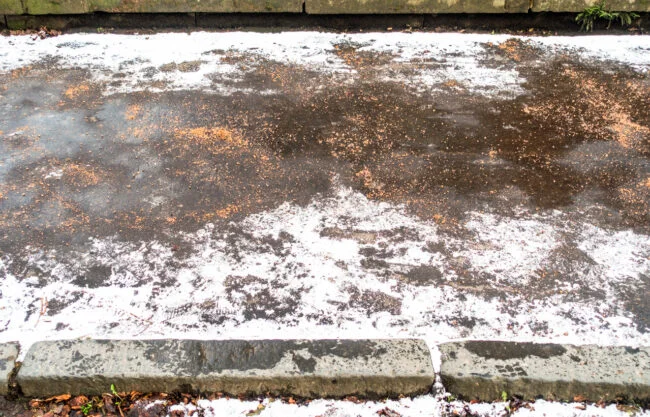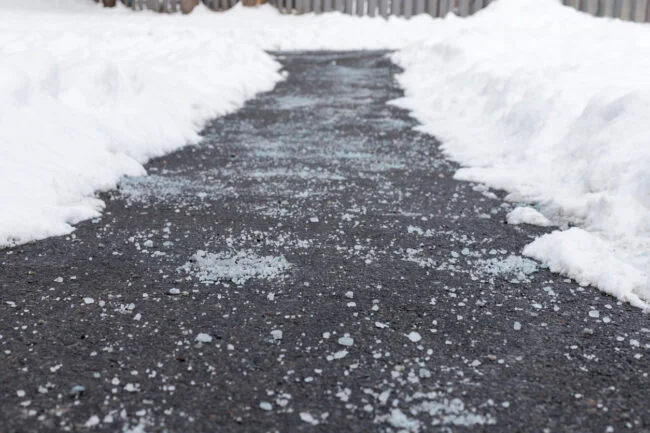When faced with winter storms and the need to keep your driveway, walkway, and porch free of ice, the absence of traditional rock salt doesn’t mean you’re out of options. While conventional rock salt can damage surfaces and pose risks to pets and the environment, exploring alternative methods ensures a safer and more eco-friendly approach to ice removal.
Embracing Alternatives to Rock Salt
Snow Melting Mats

Snow melting mats offer a passive yet efficient solution. These innovative devices, when laid along walkways or porches and plugged in, generate heat to melt ice and snow. While the initial cost is higher, the convenience and time saved from not shoveling make it a worthwhile investment.
Fertilizer
High-nitrogen fertilizers, such as those containing ammonium sulfate, potassium chloride, or urea, provide a convenient alternative. While not as quick as rock salt, these fertilizers effectively lower the melting point of ice without causing harm to pavement or yards.
Coffee Grounds

Repurpose your coffee grounds to combat ice on driveways and porches. The nitrogen content in coffee grounds aids in lowering the melting point of ice, and their dark color accelerates the melting process by absorbing sunlight.
Rubbing Alcohol
Isopropyl alcohol serves a dual purpose by not only being a cleaning agent but also an effective ice-melting solution. A cost-effective homemade mixture includes isopropyl alcohol, concentrated dish soap, and hot water, but be sure to shovel away excess water to prevent refreezing.
Sugar Beet Juice
Surprisingly, sugar beet juice, available in liquid or powdered form, proves effective in melting ice. Safe for various surfaces and environmentally friendly, it’s a unique option, although caution is advised due to its potential to stain concrete.
Vinegar
Acetic acid in vinegar lowers the melting point of ice. While not as potent as rock salt, a mixture of equal parts vinegar and hot water can effectively melt ice, requiring subsequent shoveling and water clearance.
When Chloride Compounds Are Necessary

In some cases, traditional ice melt products containing chloride compounds may be the last resort. Understanding their potential harm to waterways, plants, and pets, consider options like:
- Calcium Chloride: Effective down to -25°F.
- Magnesium Chloride: Touted as safer for pets, effective to 0°F.
- Sodium Chloride (Rock Salt): More affordable, effective to +20°F.
- Potassium Chloride: Slower-acting, effective to +25°F.
Choosing an environmentally friendly option, such as calcium chloride or magnesium chloride, may be worth the added cost, especially if you’re concerned about the well-being of pets, children, and the ecosystem.
Conclusion
When dealing with icy conditions, exploring alternatives to rock salt not only safeguards your property but also considers the well-being of pets, children, and the environment. From innovative snow melting mats to common household items like coffee grounds and vinegar, there are effective and eco-friendly ways to keep your outdoor spaces ice-free during winter storms.
image source : bobvila – istockphoto










